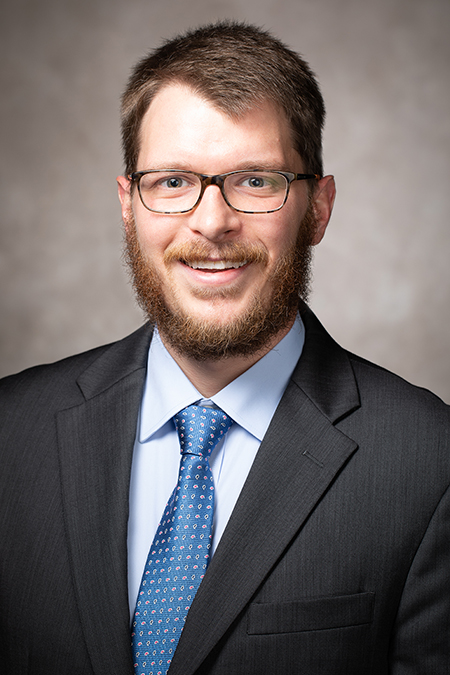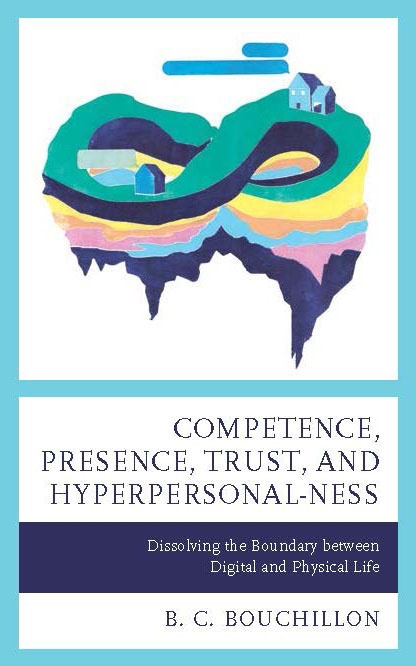FAYETTEVILLE, Ark. – It’s too easy to blame the pandemic for an increasingly withdrawn and isolated culture.
In Competence, Presence, Trust, and Hyperpersonal-ness, recently published by Lexington Books, journalism assistant professor Brandon Bouchillon reminds readers that U.S. citizens began withdrawing from one another decades before COVID-19. This was a result of increasing racial and ethnic diversity, along with a diminished understanding of how to interact.
However, Bouchillon explains the pandemic might also be connecting people, by forcing them to rely on technology more heavily and allowing them to become socially proficient in ways that transcend digital and physical environments.
“Bouchillon optimistically envisions ways in which more competent engagement with and through technology opens up opportunities for transformation and renewal of social bonds and sociability,” says Brian Spitzberg, distinguished professor of communication at San Diego State University.
 |
| Brandon Bouchillon, University of Arkansas. Photo by University Relations. |
Bouchillon uses this approach to push back against the demonization of new media and technology. Previous research has shown negative effects of spending too much time on the internet and social networking. But social distancing appears to have motivated individuals to apply computers and technology to replicate interpersonal life more fully, which is argued to promote social learning.
Bouchillon demonstrates that during the pandemic, socially distanced individuals converted computer-based social competence into interpersonal competence. Digital social lessons were felt to apply everywhere, and those experiencing networked settings as realistic and intimate — evidence of social presence — were more adept at converting one form of competence into the other. Gains in interpersonal competence spilled over to trust in the average person as well, who is increasingly diverse in America, and results suggest that technology can be used to promote more frequent, diverse social contact.
Referencing the book title, Bouchillon argues society has reached a moment of “hyperpersonal-ness,” with computer-based social capabilities and feelings of presence being used to develop interpersonal competence and social capital, even in seclusion.
“How the pandemic has affected our ability to live our lives remotely remains to be seen,” Bouchillon says. “But we know that technology can give people the opportunity to learn how to socialize, and to trust, even at times of crisis.”
About the University of Arkansas: As Arkansas' flagship institution, the U of A provides an internationally competitive education in more than 200 academic programs. Founded in 1871, the U of A contributes more than $2.2 billion to Arkansas’ economy through the teaching of new knowledge and skills, entrepreneurship and job development, discovery through research and creative activity while also providing training for professional disciplines. The Carnegie Foundation classifies the U of A among the top 3% of U.S. colleges and universities with the highest level of research activity. U.S. News & World Report ranks the U of A among the top public universities in the nation. See how the U of A works to build a better world at Arkansas Research News.
Topics
Contacts
Brandon Bouchillon, assistant professor
School of Journalism and Strategic Media
479-575-5616, bcbouchi@uark.edu
Matt McGowan, science and research communications officer
University Relations
479-575-4246,
dmcgowa@uark.edu
